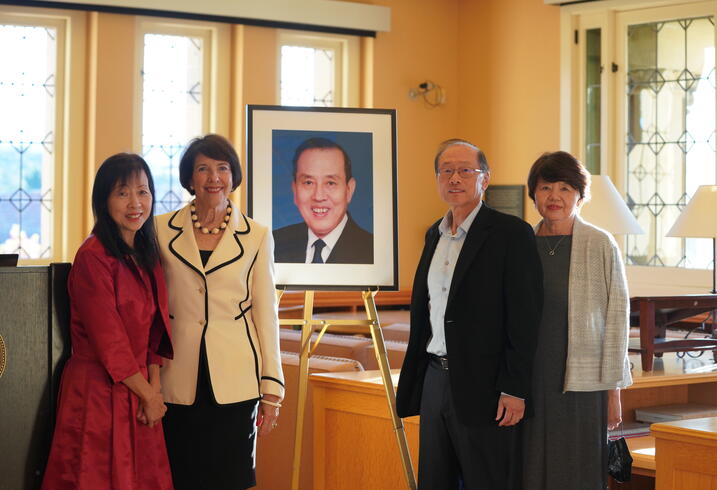Overreach and Overreaction: The Downward Spiral in the U.S.-China Relations
On September 28, 2022, Dr. Susan Shirk joined Stanford Libraries and the Stanford Center on China’s Economy and Institutions (SCCEI) as the featured speaker of the 2022 Dr. Sam-Chung Hsieh Memorial Lecture. “Dr. Shirk is one of the most experienced scholars studying China in the world”, moderator and SCCEI co-director Hongbin Li said in his opening remarks. She is a research professor and the founding chair of the 21st Century China Center, an academic research center and university-based policy think tank at the School of Global Policy and Strategy at UC San Diego, and easily “one of the top ten China scholars”.
During the first in-person Hsieh Memorial Lecture in 3 years, Dr. Shirk spoke to an audience of over 100 Stanford faculty, students, researchers, and community members on the current state of U.S.–China relations and how we got to where we are.





Shirk began her talk by acknowledging the deterioration of relations between China and the U.S. and outlined how the last decade of policy evolution has shaped the relationship. Shirk focused on two major themes in her talk: 1) China's pattern of overreach over the past decade and 2) the U.S.’s habitual overreaction to counter China’s overreach.
Shirk suggests that China has established a system that lacks checks and balance. Officials at every level compete to outdo one another while implementing leaders' directives, thus escalating the outcome to levels Xi Jinping may not have initially intended. This has led to a system of overreach that has provoked great global backlash. Shirk highlighted numerous examples of overreach, the most recent examples include the crackdown on the private sector in China, Beijing’s takeover of Hong Kong, and China's policy toward Russia. Shirk suggested that all of these acts characterize overreach and have prompted governments across the world to reduce their economic reliance on China and to lack confidence in the country.
To counter China’s overreach, the worst mistake the rest of the world, and the United States in particular, can make is to overreact, says Shirk. However, the U.S. has a pattern of overreacting to overreach with “anti-China policies that have become the bi-partisan axis of American politics.” These policies have become so ingrained in U.S. politics, that it has become difficult for American policy makers to think critically of their policies. Instead of overreacting with damaging policies, Shirk encourages a return to diplomacy between the two countries, noting that “understanding the domestic political drivers of foreign policy in both countries can help us stem the downward spiral in relations.”
Listen to the recorded lecture here:

Read More

Dr. Susan Shirk joined Stanford Libraries and the Stanford Center on China’s Economy and Institutions as the featured speaker of the 2022 Dr. Sam-Chung Hsieh Memorial Lecture.













